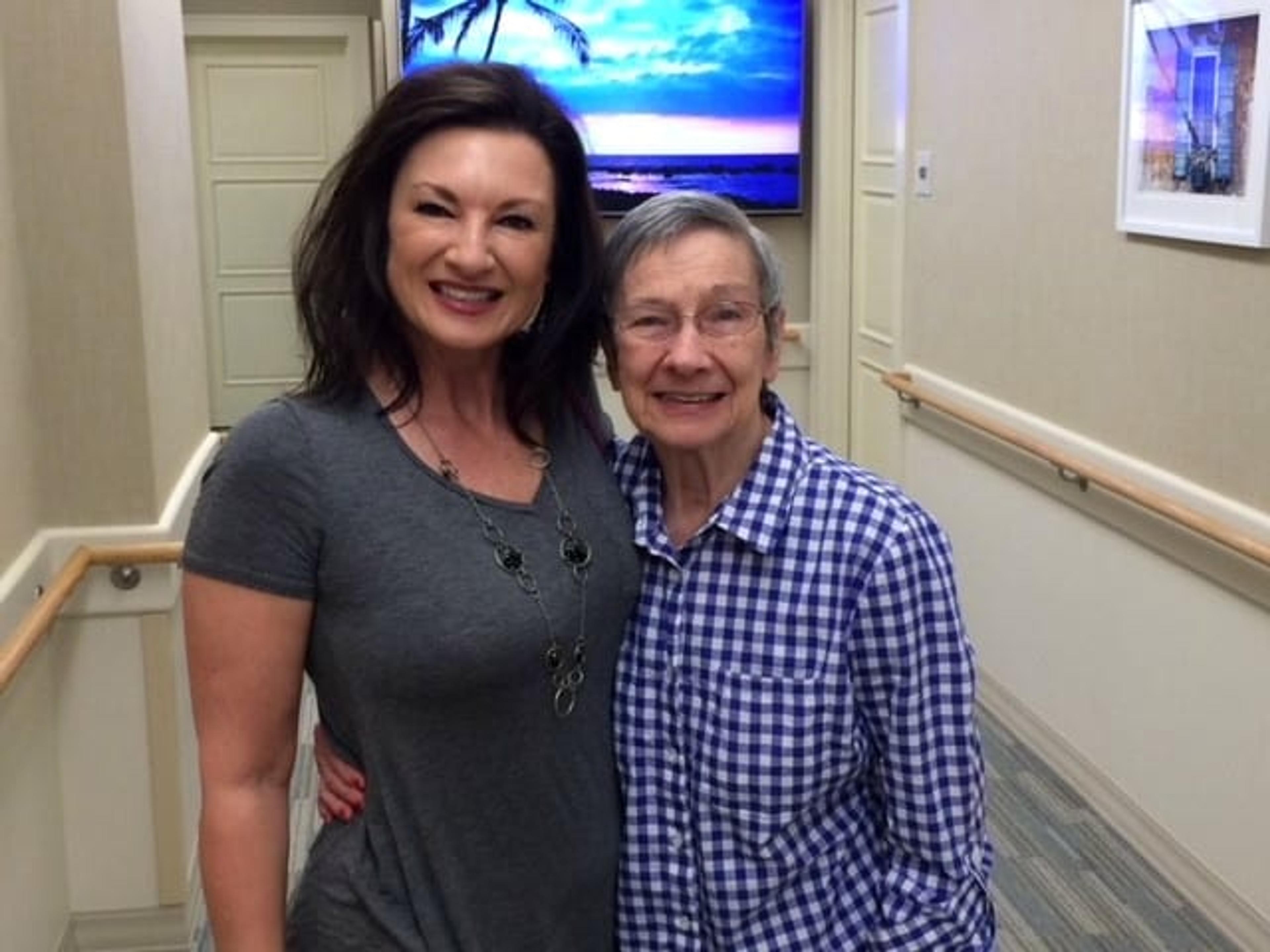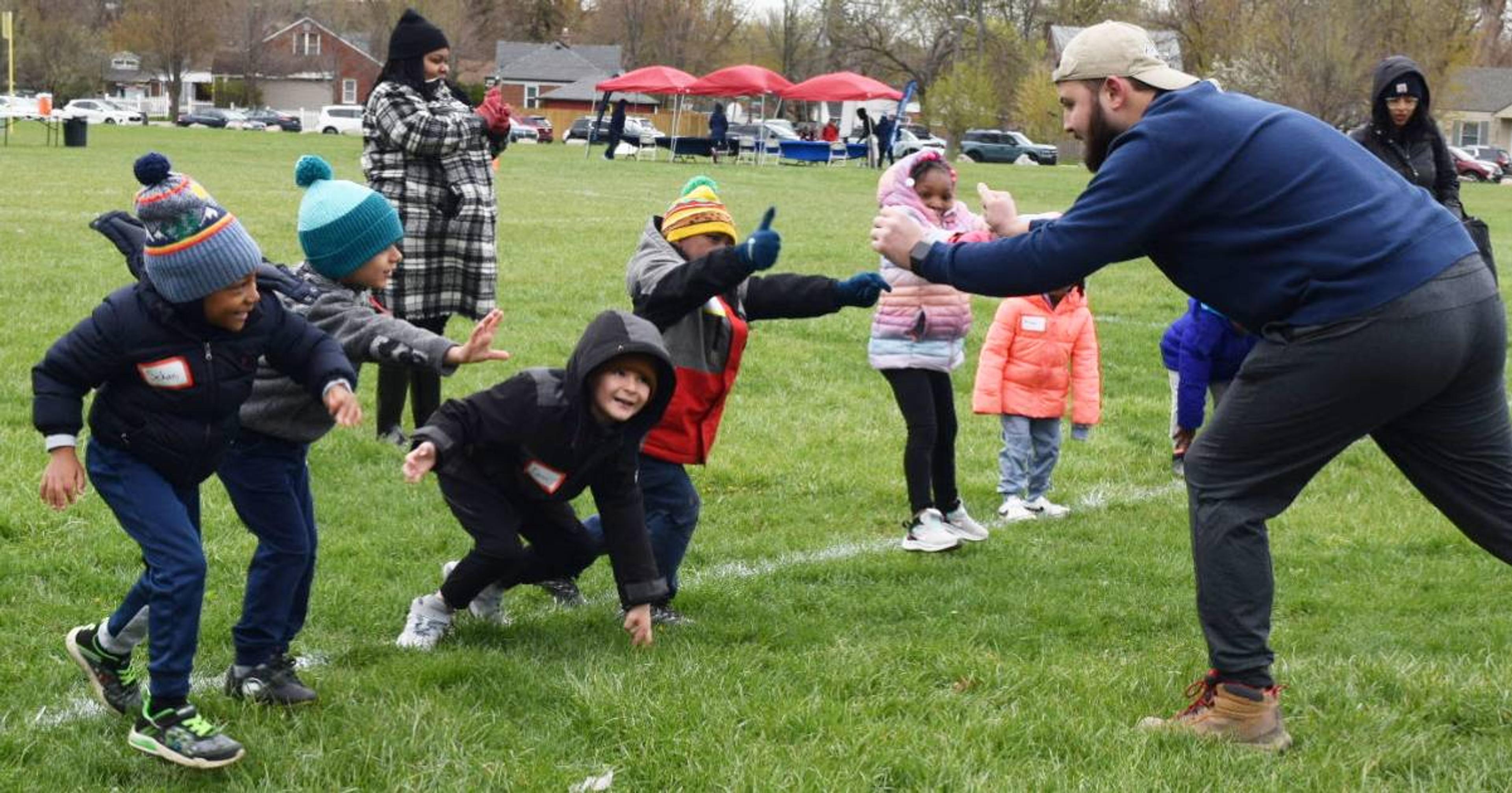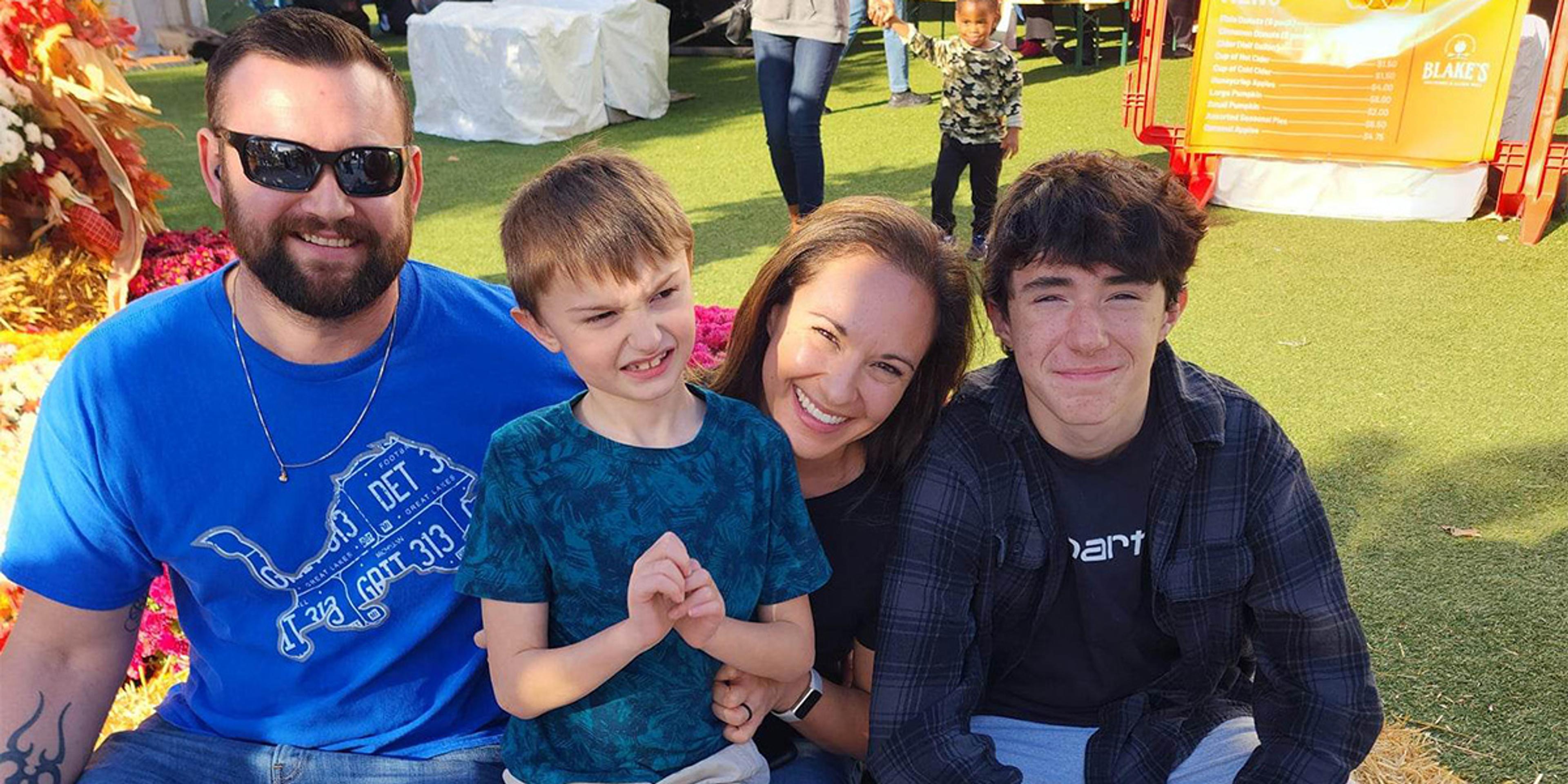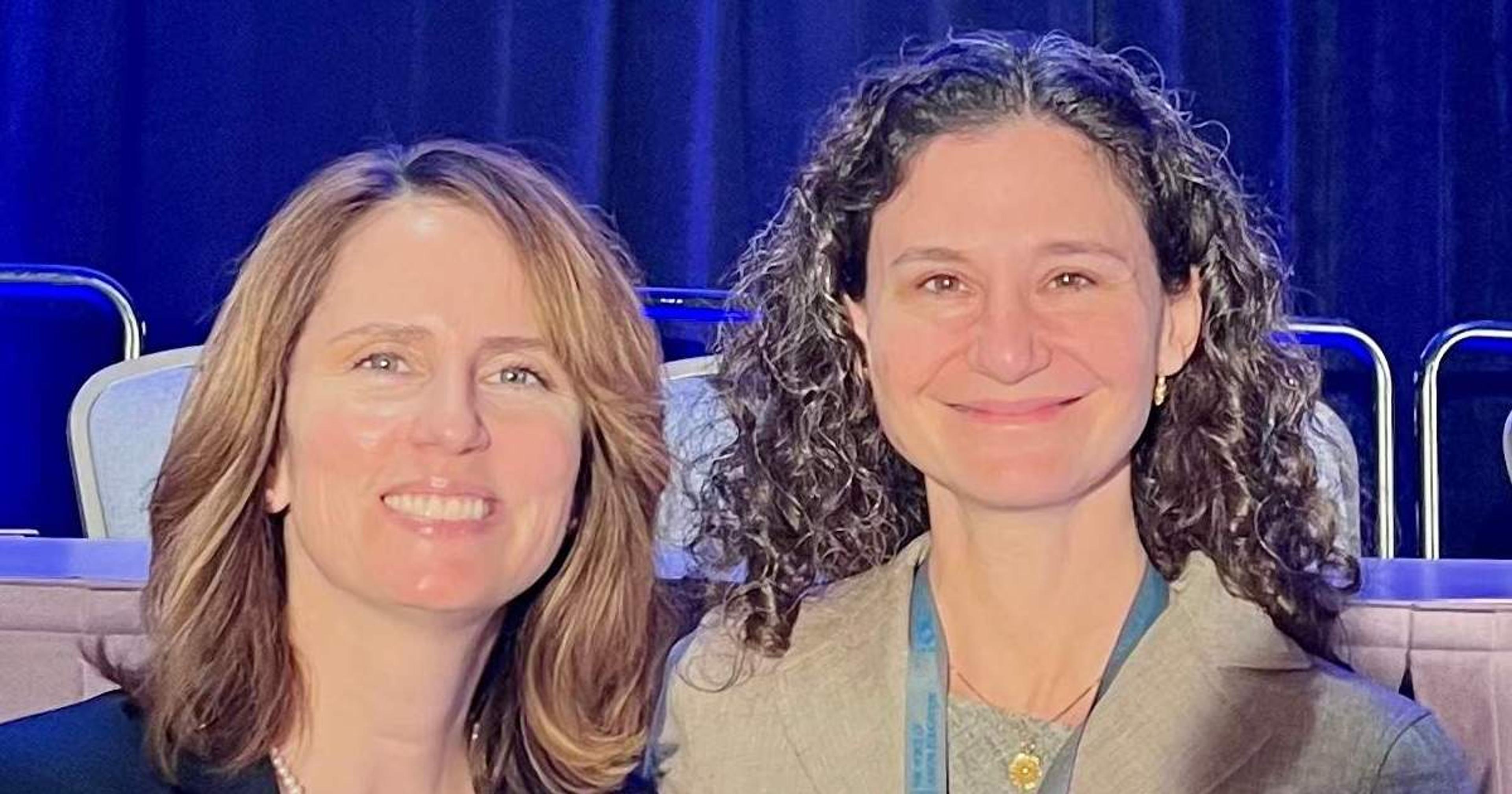
With one in 10 seniors living with Alzheimer’s dementia today, awareness of this heartbreaking, chronic brain disease, and its signs and symptoms, is at an all-time high. As dementia slowly progresses through seven different stages—ranging from no cognitive decline to severe—the warning signs often become more pronounced and debilitating. Even with the medical community’s current knowledge and information available, it can be quite difficult to recognize and address the onset of the disease when it’s happening within our own families. Such is the story of Valerie (Val) Lego, news anchor and health reporter for WZZM in Grand Rapids, whose mother was diagnosed with dementia a year and half ago.
Spotting the Onset of Dementia
Val’s mother had been outgoing her whole life, lighting up the room with her effervescence. In fact, Val remembers that whenever she called home to Pennsylvania, she would speak to her mom for at least an hour, before eventually passing the phone to her father for a quick, 10-minute catch-up. However, about five years ago, Val noticed her father started to pick up the phone for those longer conversations, with her mother becoming less and less talkative. “Maybe that should have been my first signal,” says Val. “I thought, ‘Well, maybe Dad is just trying to be more engaged,’ and sort of made an excuse for what was happening from the get-go.” Over the next year or so, the only way for Val to see her parents was to travel home. Her mom had begun isolating herself from the family, avoiding family get togethers she once used to love. To Val and her sister, the excuses seemed silly and had them both at a loss. “My sister was just as frustrated as I was. Without further explanation and living hundreds of miles away, we drew our own conclusion that they just didn’t want to be involved.” A couple years later, when Val and her sister visited their parents in person, it clicked that something was seriously wrong. During conversation, her mom would frequently go off-topic, babble and then catch herself and stop talking. Those instances, coupled with previous mentions of forgetfulness from her father, helped Val start putting the pieces together. Knowing her grandmother suffered from dementia and her aunt had died of Alzheimer’s, Val decided to take her mother in for testing. While waiting on the results, a psychologist suggested Val have her mother complete the clock-drawing test, commonly used to screen for the disease. After seeing her mother draw outside the clock and use numbers beyond 12, Val knew the underlying issue. The dementia diagnosis came soon after.
Lessons for Living with Dementia
Today, Val’s mom is about six years into the disease. The family made the decision not to put her on medication, as she was too far along—dementia has a lifespan of six to eight years. Currently, she resides in a 24-hour care facility, the first time she’s been separated from her husband of 60 years. Though her mother may always feel love when looking at her family, recognizing names and faces is day-by-day. “The biggest lesson I’ve learned post-diagnosis is that we have to live in the moment in her world,” Val says. “Some days she knows me right away, and on others she’ll say on FaceTime, ‘You look like my daughter Val!’ and talks to me about me. You have to embrace what you have and go with it.” Val reaffirms that since there isn’t yet a cure for dementia and Alzheimer’s, it’s important to spot the symptoms as early as possible. If a loved one doesn’t want to do simple things like pick up the phone, or even bathe regularly, spend some more time with them and ask deeper questions. Most times, they will know something’s not quite right, and become withdrawn to protect themselves for fear of what may happen. Getting treatment early can prolong the illness and give them more time of normal cognitive function. The fight to end dementia and its related illnesses starts with knowledge. For resources, support groups, and educational programs, head to the Alzheimer’s Association – Greater Michigan Chapter website. To hear more of Val Lego’s story, visit WZZM13.com. Val Lego will be speaking at the Faith in Wellness Luncheon on Tuesday, June 12, as part of Blue Cross Blue Shield of Michigan’s Let’s Talk Health Week events. To learn more about her story, RSVP to attend this free event at rsvpbluecross@bcbsm.com or call 616-329-5541.





